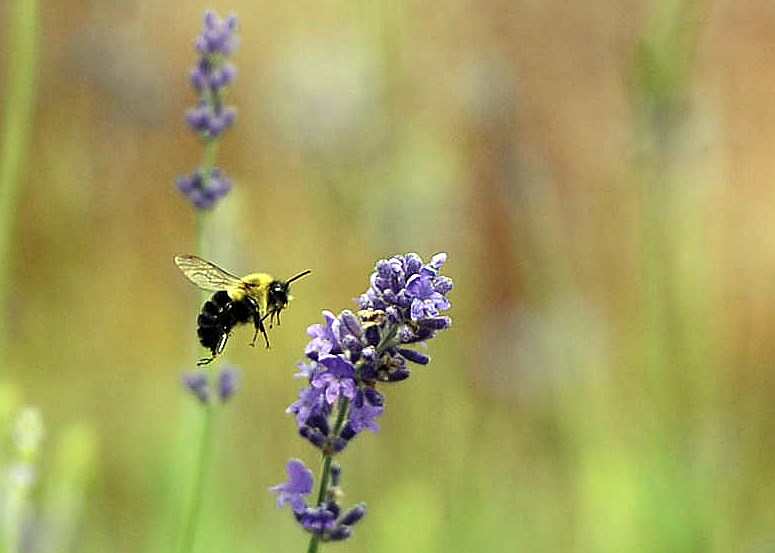The Sunshine City could soon be known by a new moniker: Bee City.
On Monday, council committee gave its blessing to apply to Bee City Canada to obtain the official designation. That decision must be ratified at Monday’s council meeting.
Bee City Canada, founded in 2015 by Shelly Candel, was created to protect pollinators and their habitat.
Candel was inspired by the idea that cities can become champions for pollinators. It was an idea that Toronto was sweet on; they became the first Bee City in Canada in March 2016. As of today, there are 23 Bee Cities in Canada.
“The mission of Bee City Canada is to inspire organizations to take action to protect pollinators and their habitat,” said a report to council.
Orillia Mayor Steve Clarke said it’s a timely and important move for the municipality.
“The timing is terrific,” said the mayor, referencing the launch of Sustainable Orillia last weekend.
“It may be a greater issue that some of us may think,” said Clarke, adding that “if nothing is done, the negative effect on biodiversity ... would lead to food insecurity. I don’t want to sound alarmist but there are warning signs out there, so I am looking forward to what the working group might bring forward that would allow us to be more sustainable.”
According to the report to councillors Monday, becoming a Bee City “will establish the City of Orillia’s commitment to a healthier, greener Orillia (and) it will raise awareness of pollinator diversity and the benefits of using native plants in habitat restoration.”
Staff said the $300 annual membership fee will provide the city and the Bee City Working Group “with access to activities and program information to assist in the promotion of pollinator protection.”
If the city’s application is approved by Bee City Canada, Orillia will celebrate National Pollinator Week June 17-23.
According to the report to council, the city has already created, maintained and/or improved pollinator habitats through a variety of efforts.Those include:
- The planting of native trees, shrubs, and plants;
- Building butterfly gardens at Stephen Leacock Museum, J.B. Tudhope Memorial Park and Scout Valley;
- Maintaining sports fields with cultural field practices that do not include pesticide use;
- Using biological and cultural plant-care health methods to control greenhouse pests;
- The city encourages, as much as possible, that shorelines have a natural buffer that is not mowed in order to increase naturalization and protect the water (i.e. Kitchener Park Shoreline); The City provides flowering plants in hanging baskets and maintains the baskets through the downtown core;
- The city currently has two community gardens that include plantings of vegetables, herbs, and/or fruit, many of which can attract pollinators and provide them with forage and habitat;
- A section of the High Street Community Garden was planted by a group of volunteers with flowers and plants specifically designed to attract pollinators.
Based on the application requirement to commit to future efforts to improve pollinator habitats, the city will do a number of things, including:
- The city will continue to plant pollinator and native species within existing parks;
- The City will continue to leave naturalized areas within parks to allow for the flowing of native plants;
- The City will continue to adhere to the Pesticides Act of Ontario and not use Class 9 pesticides for cosmetic purposes on City owned or leased land;
- The City will investigate the planting of native Milkweed and other native nectar plants in City parks and open spaces;
- The City will investigate expanding naturalized areas in parks and open spaces that are self-sustaining and ecologically diverse;
- New designs and construction projects will promote the creation of new gardens in parks, recreation centres, parking lots, and other public spaces with an eye to improving pollinator habitats.
In their application to Bee City Canada, the proponents of the plan laid out some ambitious goals that included providing information via art, displays, literature and videos explaining how we will not have food without pollinators.
Without pollinators, notes the report, we will not have fruit, vegetables, grains nor seeds which also means we will have no meat-producing animals whose diets consist of those elements such as cattle or chicken.
The group plans to use social media, teachers, professors, the library and farmers’ markets to share this information.
“I’m really excited about this,” said Coun. Jay Fallis. “I hope we can join these other cities in becoming a Bee City.”
